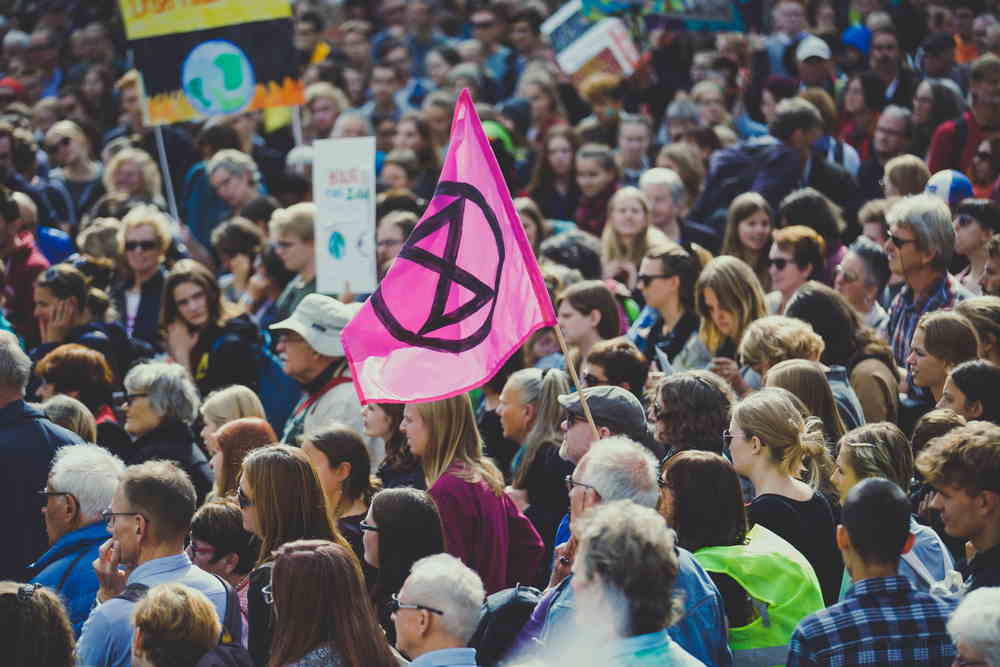Here is how you can make a difference in your own office …
Increased scientific concern about catastrophic climate change has seen children marching on the streets, UK Parliament declaring a climate emergency, Extinction Rebellion protests and company Boards reviewing their sustainability strategies.
At work there are some cost-effective greenhouse gas emission reduction actions that don’t need senior sign-off – in fact your everyday work decisions can make a significant impact:
1. Energy Efficiency
This can be done every time you replace a light bulb or buy a new piece of equipment. For example, 20% of a business’ energy bills comes from lighting, so switching to LED lightbulbs, which consume up to 80% less energy compared to traditional incandescent bulbs are a great investment. And because they last much longer, there are labour savings in avoided replacement time. These days financing of energy efficient equipment is easy so you save from day one.
More information about how businesses can improve their energy efficiency can be found through the EP100 site, which is a collection of businesses aiming to double their energy productivity by 2030 or from the Energy Saving Trust.
2. Digital Travel
Save money, the planet and spend more time with your family and friends – what is not to like? The proliferation of free and low cost video telecommunication platforms mean that you don’t even need to travel across town to check on a project let alone travel internationally to stay in touch with colleagues. Aviation is one of the fastest growing sources of carbon emissions and if you have to fly, your greenhouse gas emissions can be offset can often be avoided through conducting meetings via high quality digital telecommunications platforms.
If you do have to fly, you can off-set your carbon impact with great companies like Natural Capital Partners who sell carbon credits that are generated in innovative projects that have social benefits as well as environmental improvements.
3. Renewable Energy
Powering your organisation with 100% renewable energy saves greenhouse gas emissions without incurring much (if any) additional expense. Switching energy providers for a business is a bit more complex than doing it for your home (where you can switch at any time – so why not do that too). First work out when your contract expires and when you can terminate your contract. Then choose one of the growing range of fully renewable energy providers. There are services out there like Make it Cheaper who can help with the legwork.
4. Food Choices
WeWork made waves when they announced that no meat would be served at staff events and that employees would not be able to expense meals that included poultry, pork or other meats. The Company estimated that the policy would save 200 million kilograms of CO2 by 2023. If you don’t want to go as far as WeWork there are smaller steps you can take.
The World Resource Institute estimate that 75% of all meat-caused emissions are from beef and lamb alone. Why not follow the Cambridge University’s lead and trial removing beef and lamb from your canteen? As well as this being a more environmentally-friendly option, they saw a 3% increase in profits and a 9% uplift in sales. Begin the conversation about your organisation’s eating habits.
5. Circular Consumption
There is a broad range of companies out there providing Circular Economy office products. Rype Office has shown how remanufacturing high quality pieces of office furniture after their first life can help clients get a beautiful, sustainable office for less – including 80% less embodied greenhouse gas emissions compared to furniture from virgin resources. You can read our guide to five other circular economy office solutions here.
6. Pension Power
According to the FT, only 5% of the UK’s biggest corporate pension funds, which collectively oversee £479 billion in assets, have a policy on climate change. If you ask them (and we have) they will say that this is because their customers (i.e. you and I) don’t ask for it and that is because we don’t really care about climate change!
You and your organisation’s pension plan have the power to drive a change in investment culture. Email your pension provider and ask them to explain how their investment strategy aligns with limiting global warming to well below 1.5 degrees Celsius. You could also ask how their asset managers are working to improve environmental performance in companies in which they hold equity, or to see the names of the companies they have invested your money into to check that they align with your values. Yes you can do this – we all pay them to manage our money.
7. Smart Waste Management
Not all waste companies deal with waste in the same way, so find one who follows through with your sustainability efforts after your waste leaves your premises. Bruce Bratley, CEO of First Mile, notes:
“It’s vital that businesses take steps to avoid their waste ending up in landfill sites where it will produce greenhouses gases, such as methane [which is over twenty times more damaging as a greenhouse gas than carbon dioxide]. First Mile operates a zero-to-landfill waste policy, and this is one of the crucial questions to ask your existing or potential waste management provider: Do you send any waste to landfill? What is your recycling rate? What do you do with material that isn’t easily recycled? We all have an ethical responsibility to leave a greener footprint on the planet by creating as little waste as possible and maximise our recycling efforts.”
These office climate change actions create a better world and better organisations that are in tune with the values of staff and customers. Many companies leading in addressing climate change are finding new and effective ways to connect with their audiences – which is also reducing their marketing spend.

